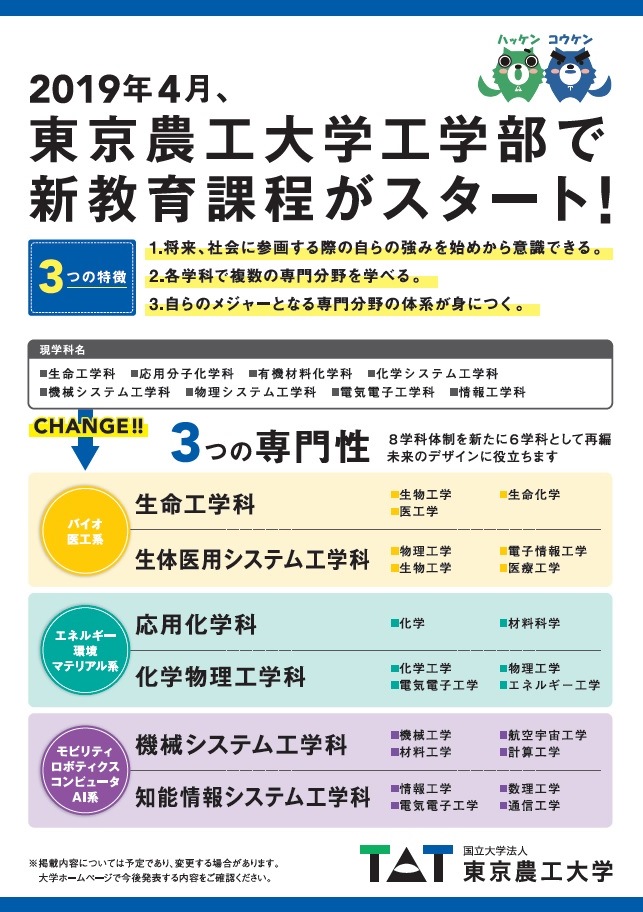Characteristics of Learning in the Faculty of Engineering
Information on the characteristics of learning in the Faculty of Engineering.
Cultivating capable individuals who continue to stand at the cutting edge of science and technology to lead the day
Message from the Dean
April 2019 Department of Engineering will Big change!

At Tokyo University of Agriculture and Technology department of Engineering, in April 2019 the department was reorganized into six departments of
Department of Biotechnology and Life Science,
Department of Biomedical Engineering,
Department of Applied Chemistry,
Department of Applied Physics and Chemical Engineering,
Department of Mechanical Systems Engineering,
Department of Electrical Engineering and Computer Science.
Admission Policy
| The education the Faculty of Engineering seeks to provide is the cultivation of creative students eager to study the truths of nature and with a keen interest in manufacturing and craftsmanship. It is our desire to draw students able to converse with people having a wide range of ideas and who possess the passion to throw themselves into their interests and lose all track of time. |
|---|
Purpose and Characteristics of Learning
The Faculty of Engineering provides an education in both the fundamentals and expert knowledge and techniques of science and technology in the field of engineering. The faculty aims to cultivate talented individuals who possess the extensive learning and specialized knowledge that fosters their abilities to perceive the true nature of problems needing to be solved, and are able to harness these abilities to realize a sustainable society.
Four-Year Curriculum
The faculty curriculum is divided into eleven courses based on the unique features of specific scientific fields. Each course is comprised of curriculums based on their goals and principles.
The subjects students will take during their four-year education in the faculty are divided into general studies classes and foundational and specialized education classes. The flexible curriculum allows students, for example, to engage in specialized studies in their first year and take common liberal arts subjects in their fourth year. The graduation thesis students must write in their fourth year helps them cultivate the abilities needed to independently and proactively establish a research plan and carry it out.
